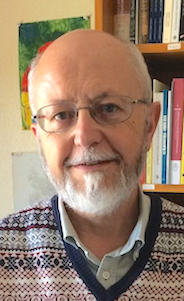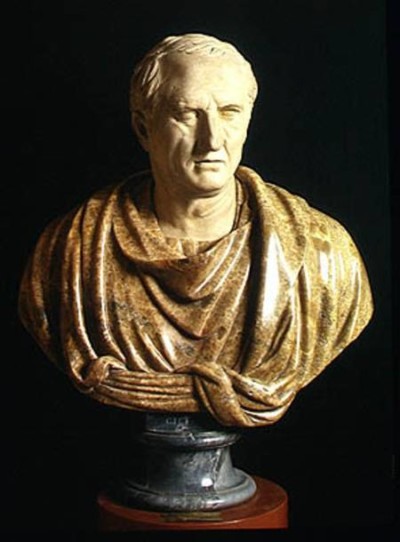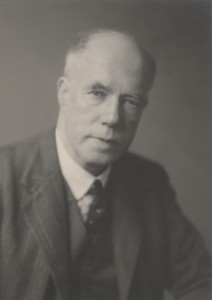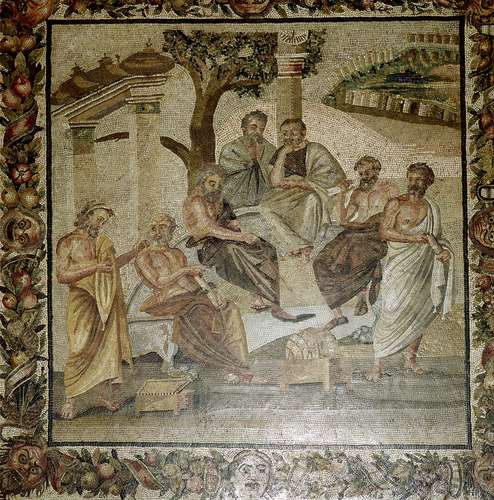Alfonso García Marqués
Tò tí esti, tò tí ên eînai, tò ón:
su sentido y traducción (2016)
Vínculo al texto original:

Platón y Aristóteles
El siguiente trabajo es una traducción al inglés del interesantísimo artículo de Alfonso García Marqués. Este escrito me pareció muy atractivo porque en él confluyen varios temas cercanos a mí: la filosofía de Aristóteles, el análisis lingüístico y semántico en una lengua como el griego y su uso en la antigüedad y, por supuesto, la traducción. Se trata de todo aquello que me nutre y que busco compartir con los demás, pero de lo que no logro escribir por mí mismo. Encontrar, sin embargo, la oportunidad de transmitirlo a través de las palabras de quienes sí pueden hacerlo, como el profesor García Marqués, es, para mí, la esencia de este blog. Recomiendo visitar su página en Dialnet (https://dialnet.unirioja.es/servlet/autor?codigo=28290), donde se pueden leer otros escritos suyos, y le expreso mi profundo agradecimiento por permitirme traducir su artículo.
Tò tí esti, tò tí ên eînai, tò ón: sense and translation
Alfonso García Marqués
Universidad de Murcia
ABSTRACT
This article seeks to determine the meaning of three expressions (tò tí esti, tò tí ên eînai and tò ón) used by Aristotle in his Metaphysics and discusses the validity of different translation proposals (essence, quiddity, what is, entity…).
Methodologically, it starts with the assumption that philosophical terms come from ordinary language, which is where we look in to ascertain the origin of these formulas. We discuss the presence of the imperfect tense ên (was) in the long formula, and we explore the reason for the apparent duplicity of formulas (tò tí esti and tò tí ên eînai). The conclusion is that the use of the imperfect tense is perfectly normal in this context, even necessary, while both formulas are not equivalent: tò tí esti refers to the abstract definition of something, whereas tò tí ên eînai refers to the individual reality of one thing in particular.
In consequence, we establish that tò tí ên eînai cannot be translated as “essence” or “quiddity”, since these terms have an abstract content. They would be useful, though, to translate tò tí esti, although the articulated expression is preferable (the what-it-is). We maintain that the most appropriate version of the long translation is “the what-it-was-being“. Concerning tò ón, we propose that, while retaining its translation as entity, we should also add existent as an alternative and complementary translation.
Keywords: the what it was being, what is, essence, quiddity, entity, Aristotle, metaphysics.
RESUMEN
El presente artículo busca determinar el sentido de tres fórmulas empleadas por Aristóteles en su Metafísica (τò τί ἐστι, τò τί ἦν εἶναι y τò ὄν) y discutir la validez de las diversas traducciones propuestas (esencia, quididad, qué es, ente…).
Metodológicamente se parte de que los términos filosóficos surgen del lenguaje ordinario y en él se busca el origen de esas fórmulas. Se discuten especialmente los aspectos que parecen contradecir el uso ordinario; en concreto, la presencia del imperfecto ἦν (era) en la fórmula larga. Y además, se investiga el porqué de la aparente duplicidad de fórmulas (τò τί ἐστι y τò τί ἦν εἶναι), pues ambas parecen preguntarse por lo mismo.
Se concluye que el uso del imperfecto es totalmente normal en ese contexto, incluso viene exigido, y que ambas fórmulas no son equivalentes, sino que τò τί ἐστι pregunta por la definición abstracta de algo, mientras que τò τί ἦν εἶναι cuestiona por la realidad individual de una cosa concreta.
En consecuencia, se establece que τò τί ἦν εἶναι no puede traducirse como esencia o quididad, pues estos términos tienen un contenido abstracto. Servirían más bien para traducir τò τί ἐστι, aunque es preferible la expresión articulada (el qué es). Se sostiene que la mejor traducción de la fórmula larga es: el qué era ser. En cuanto, a τò ὄν se propone que, además de mantener ente como su traducción, habría que introducir existente, como una traducción alternativa y complementaria.
Palabras clave: el qué era ser, el qué es, esencia, quididad, ente, Aristóteles, metafísica.

Alfonso García Marqués
1. Methodological considerations
Every science, including philosophy, requires a technical vocabulary to speak precisely about the subjects it deals with. Paying attention to words, their meaning and use, is at the heart of philosophy. Not few philosophers, even since Antiquity, have made remarkable efforts to clarify the terms they use. We are all familiar, for instance, with book Delta in Aristotle’s Metaphysics or Cicero’s at-length discussions to specify the vis verborum. I would almost dare say that the motto of Aristotle’s philosophy could be: “We must consider the mode in which to express each thing, but no more than each thing’s mode of being”.1
Technical vocabulary in philosophy is certainly derived from ordinary language. In general, the adopted terms are of everyday use, and their semantic content may help translationally to convey the desired meaning. Sometimes, new terms are coined —though not so frequently—, and, lastly, we can also resort to creating syntagmas or expressions formed by many words. Whatever the case, we must bear in mind that the connection to ordinary language is something necessary; otherwise, the new word or expression would be unintelligible.
We should consider that no tongue is born, but becomes, philosophical. In other words, languages are primarily designed to enable communication between human beings, through a spontaneous, natural description of the world, but not for philosophy and science. Thus, though it is often said that Greek —or German, as Heidegger peculiarly claimed2— is a philosophical language, actually it became philosophical after a series of thinkers took vocabulary from ordinary language and gave it new meaning, related to its original sense. The connection with common meaning is (at least initially) absolutely necessary, or else, the new term would be unintelligible, as I mentioned. Likewise, whenever instead of adopting available words they created new ones, or coined syntagmas out of multiple terms, they did so in line with a semantic network including other related terms which are, precisely, those which allow for the word or expression’s intelligibility.
On the other hand, we have the matter of translations. It is important to note that when a non-philosophical language —as every language is— is faced with philosophy —and, in general, with any technical vocabulary—, the speakers suffer a sense of poverty: they cannot say as much in their own language as in a foreign one. First of all, we must admit that such sense is justified: one’s own language is yet devoid of a translation or expression for those philosophical concepts to be translated; however, this does not preclude a cultured language from creating its own philosophical vocabulary, as precise as that of the source language.3
The Latin language shows us an example of this. All of us are well acquainted with the Latins’ complaints about their tongue being philosophically poor.4 However, if we pay attention to their discussion, we learn they were evidently aware that every language faces the same problems: they lacked words to speak about philosophy; yet this did not prevent them from doing so, first by means of circumlocutions, and afterwards by slowly coining concepts and terms, until they finally transformed their tongue into a philosophical language. Hence, Lucretius, after complaining about his language’s egestas (destitution), immediately adds: “It is, however, easy to present this matter through words”.5 And Cicero himself was fully aware of the richness Latin had attained. Therefore, despite Book I of De finibus being frequently cited as Cicero’s lament for his tongue’s poverty,6 it is actually a defence of Latin’s cultural superiority, against those very Romans who had a complex about Greek culture: “I think and I have frequently proposed that Latin language not only is not poor, as commonly thought, but that it is even richer than Greek”.7
In conclusion, I hold that no tongue is born, but becomes, philosophical. Therefore, we must resort methodologically to the common use of a language, in order to understand the original meaning of the technical philosophical terms used and to trace their semantic evolution, their philosophical enrichment. Similarly, when translating we must consider the spirit of the target language, its semantic fields and traditions, so as to find a suitable term which may fulfil a role equivalent to that of the original word in the source language.
From these brief considerations, we can draw the first methodological conclusion: it is absolutely necessary to resort to ordinary language, if we intend to understand the origin, evolution and semantic content of a philosophical term or expression. Without this preliminary work, it is very difficult to provide an adequate translation, especially when, due to historical reasons, they occur via a third language.
To a great extent, this has been the case of Aristotle, whose reception in our days has always been mediated by an interpretive tradition, wherein Medieval Latin translations had (and still have) a weight of their own. This has led, in my opinion, to significant misconceptions in the understanding of Aristotle’s Metaphysics.8

Cicero
2. The formulas tò tí esti and tò tí ên eînai
a) Presenting their difficulties
From a purely grammatical standpoint, the formulas τί ἐστι (or τò τί ἐστι) and τò τί ἦν εἶναι are not problematic, in spite of the second formula’s surprising imperfective aspect. Their literal translations would be what is (or the what is) and the what it was being. I say they are not grammatically abnormal, since there is nothing strange in the question about the what is (what is a table, what is a sonnet). Likewise, grammatically speaking there is nothing to criticise if we say, referring to the 10th century for instance: let us enquire into what it was travelling; or even: let us enquire into the what it was travelling then, using in both cases an imperfect.
It is clear that, although in Spanish and Greek we do not need the article to nominalise an interrogative sentence or an infinitive (or even any phrase whatsoever), sometimes however it is called for in order to avoid ambiguity. Using the article is particularly necessary if we are not expressing an ordinary use of the syntagma as subject or direct object, but an interrogative sentence used anaphorically or as metalanguage. Hence, we can write the nominalised interrogation between quotation marks or in italics. If we say, for instance, let us enquire into what nutrition is, we may add: the “what nutrition is” is the object of our inquiry.9
Actually, what is surprising is the appearance of two formulas which, in Aristotle’s philosophy, seem to express the same. Garcia Yebra acknowledges his puzzlement regarding this duplicity and admits he thought of translating tí esti as essence, but afterwards changed his mind and translated it as quiddity, keeping essence for tò tí ên eînai.10
In the face of this duplicity and, above all, of the apparently strange use of the imperfect in the long formula, it is common to make a philosophical (not philological) interpretation11 or to look into the physical philosophers (or Pre-Socratics) for the question about being in the past. This is just what Courtès did, and he reached the conclusion that, in fact, there is no such formula in the Pre-Socratics, but that “the elements of the formula are prior to Aristotle and linked to widespread concerns in Greek philosophical media”.12 And in response to the insidious imperfect, whose presence in the formula is mysterious, philosophical inquiry has gone so far as to invent a purported “philosophical imperfect”, which might be used to refer to previous discussions, as explained by Ross.13 Furthermore, Ross adds that the use of the imperfect could stress duration, and that in Aristotle it expresses the pre-existence of forms before their adherence to matter.14 I am not denying that the formula should be philosophically interpreted; but to understand its sense and, above all, to account for the use of the imperfect, we should take a philological approach, such as I intend to do in this article.
Hence, we have two problems to debate about the tò tí ên eînai and the tò tí esti: the use of the imperfect and the duplicity of formulas.

Valentín García Yebra
b) The problem of the imperfect
As I have mentioned, the formula τò τί ἦν εἶναι should be literally translated as the what it was being. The problem arises with the use of the imperfect ἦν (was), why not a present? Much has been written about this, with a wide range of opinions.15 Most of them are compatible: it is an imperfect —they claim— that continues into the present (was and is) and has influence on the present; also, it is asserted that Aristotle says “was” to refer to what the thing was before being known; or even, it is said that Aristotle enquires into what the thing was since the beginning, before its various accidental changes, etc. In general, dispensing with exaggerations such as the invention of the so-called “philosophical imperfect” or Ross’s extreme claims, I think we can agree on these philosophical interpretations. Yet, I believe such explanations do not justify the use of the imperfect in the formula: why would Aristotle abnormally use the imperfect, if the present could convey everything he wished to express?16
Consequently, following our methodology, we must focus on the philological aspects and examine the use of the imperfect in common language, and see whether Aristotle deviates from it when creating his formula. A thorough investigation on the Greek imperfect far exceeds the scope of this text, so I shall confine myself to highlighting some relevant features for our topic.
Firstly, we can say that the imperfect is a non-specific past tense, for it is a continuous action. In this sense, in Greek it is different from the aorist, wherein action lacks duration. Likewise, in Spanish it is opposed to the perfect or simple past, which are finished or particular actions.
Nevertheless, let us take six examples of normal uses of the imperfect in common Spanish speech. 1) It is frequent to find phrases such as: “It was five in the morning when Napoleon came out of his tent.” In this case, there seems to be no duration in the action expressed, but we could well consider that there begins a temporal duration for future actions. 2) Fables, tales, Gospel parables, etc., often use the imperfect as their tense of choice (“There was a starving fox.” “In a faraway country, there lived a king.” “A certain man went down from Jerusalem.”) Note that there is some sort of atemporalization: it is not that the man “went down” yesterday, but it is an action without reference to today. 3) When we are introduced to someone, once she has left, if we forget her name, we may ask those present: “What was her name?”. In this case, we tend to say: since it is an imperfect, we understand that her name “was” and “is”, but we could add “and will be”, for that will always be her name. 4) If a student tells her professor she will meet him at 10 a. m. the following morning, but turns up at 11 a. m., the professor could surely say: “Were you not coming at 10 a. m.?”; the same could happen if she turned up at 9 a. m. In other words, whether the reference point is past or future is indifferent. 5) If a group of students tell the professor one by one when they can give their oral exam, in the end, to recap, the professor could say: “You, John, came on Tuesday at nine; you, Maria, came on Wednesday at ten”. 6) If we are in a meeting and someone we do not know leaves the room, we can approach a friend and ask him: “Who was it?”, in the sense of: “Who was the one who has just left?”.

Sir William David Ross
I think we may draw three conclusions from these six examples. Firstly, that the imperfect is a past time, but not in a strict sense, for it bears no direct relation to the moment of speaking, which is how we tend to measure times in a strict sense. The Latins knew well that this was an imperfect action, i. e., unfinished; that is to say, a given action which may continue into the present and the future, even without specifying the moment of its beginning. This is, then, a tense which does not specify the action in a strictly determinate moment, and thus makes it atemporal or permanent. As a result, this is an apt tense to express, at least in certain contexts, what was, is and will be.
Secondly —and more relevantly—, we can conclude that the imperfect is used for indirect quotations; in other words, in free indirect speech.17 Thus, when we ask “What was her name?”, we may reformulate as “What did she say she was called (is called)?”; or when we say “Were you not coming at ten?”, it would be equivalent to “Have you not said you came (would come) at ten?”; and similarly, “You, John, came at nine”, would be like saying “You, John, have said you came (would come, will come) at nine”. In sum, the imperfect becomes atemporal due to its unfinishedness and may be used in free indirect speech, in reference to something previously said.
Thirdly —and this is decisive—, we have the reference to something not explicitly said, but known or taken into account by those engaged in discourse. This is the sixth example, wherein we just say “Who was it?” to ask for someone who evidently has just left the meeting.
This use, which in Spanish is perhaps rare but absolutely normal, is commonly found in everyday Greek. A particularly relevant fragment is that of Symposium (213b). Alcibiades, wholly drunk and held up by a flutist, arrives at the place of the symposium. He lies down on a triclinium, unaware that Socrates is there, “and at that moment, turning round, he sees Socrates and, upon seeing him, jumped back and said: ‘By Heracles! What was this? It is Socrates!’ (ὦ Ἡράκλεις, τουτι tί ἦν; Σωκράτης οὖτος;).18 Most versions translate the imperfect ἦν as a present.19 However, there is nothing wrong with rendering the verb as an imperfect, as I have just done in the translation I offer. Furthermore, I would even dare say that, in Spanish, given a similar situation, the most common use would be the imperfect; in other words, if when lying down we notice a lump in the bed and jump up, it would be absolutely normal to exclaim: “What was that?”. Moreover, let us suppose that, on the contrary, we hear an unusual noise which suddenly stops: the usual question would be “What was that?”*, for it no longer “was”, meaning it does not remain now and, as such, what we mentioned —the noise— is no longer imperfect (unfinished), but perfect (finished).

Socrates dragging Alcibiades from the Embrace of Sensual Pleasure,
Jean-Baptiste Regnault
In this search for the use of the imperfect in ordinary Greek, Isabel Conde has tracked the instances of «τουτι τί ἦν;» in Aristophanes, and has located a dozen of them.20 From these passages we can see that already in the times of Aristophanes (444-385) it was normal to ask “What was this?”, in reference to something verbally unspoken, but present to everyone. Conde adds too that the determining feature in the use of the imperfect is “that, besides the question, there is an implicit mechanism of citation”.21 That is to say, in the example of Alcibiades it is as though someone had said “that is Socrates”, and then the surprised Alcibiades had asked: “What was that?”, as if saying “What did you say it was?”. In the Platonic narration, no one had said “That is Socrates”, but everyone had that in mind, as if it had been expressed. Or in another parallel example in Spanish. Considering that everyone knows the class begins at nine, in the case that many students arrived at half-past nine, the professor could reproach them: “Was the class not at nine?”, referring not to something said, but to something everyone knows. In sum, in this kind of interrogations, the presence of the imperfect is a linguistic use justified by the reference to something which is presupposed to be said or known.22
Everything we have explained about the imperfect makes us see clearly why Greek speakers felt nothing strange in the use of the imperfect in Aristotle’s formula. To begin with, Aristotle himself never explains or justifies his use of the imperfect, something which would have been expected if that had been an abnormal use. Commenting on the Metaphysics, Alexander of Aphrodisias characterises the τὸ τί ἦν εἶναι as a technical phrase and considers this use of the imperfect as “common usage”.23

Manuscript of the Constitution of the Athenians by Aristotle
c) The sense of the two Aristotelian formulas
I think we are ready to interpret the Aristotelian formulas.
With regard to τί ἐστι (what it is), let us simply say that it is a normal way to ask for what something is. And we can nominalise it: in Greek, with the neuter article (τò τί ἐστι), and in Spanish, with the masculine: el qué es [the what is]. This is, then, an absolutely regular expression in ordinary speech which, in philosophy, was used by Plato for his enquiry on the what is something: not in general, but as such, i.e., in his search for a definition. In other words, in ordinary speech we may ask: “What is that friend of yours?”. And we answer: “Architect”. But in philosophy, the question about the what asks for what something is as such; in the example: living being or animal or something similar. Once again, I point out that the philosophical expression is derived from ordinary language and this is why it can be understood, although it certainly has its own technical precision. Also note that the interrogation lacks a subject, for the complete question would be: “What is horse?”, or in general, “What is this?”, which would be answered thus: “vertebrate”, “mammal”; that is, by stating its general properties. Notwithstanding, it is clear that, when we metalinguistically nominalise the expression, it is not necessary to mention the subject: it is sufficient to say “let us enquire into the what it is”, without adding anything else.
The long formula poses greater difficulties, and it seems Aristotle should have explained its sense. More than once it has been claimed that Aristotle never clarifies the meaning of his formula;24 however, this is not true, since at least on one occasion the Stagirite does show its sense and “compares” it to another formula.
When Aristotle deals with the different senses of words, in his exposition in Delta of the senses of as such (καθ᾽ αὑτό), he writes: “As such is said in many ways. Indeed, an as such is the what it was being for each thing; for instance, Callias is as such Callias and the what it was being for Callias. In another sense, it is everything included in what it is, for instance, Callias is as such animal, for the definition includes animal, since Callias is a certain animal”.25
This is a text of the utmost importance. To begin with, we have to understand that the answers to both questions refer to what the subject (Callias) is as such. Therefore, the answer to the question what it is (τί ἐστι) cannot be Greek or philosopher, but animal or vertebrate or rational or something of the sort. Consequently, the sense of τò τί ἐστι becomes perfectly defined: what it is Callias as such, that is, how we can define Callias, how we can show that, universally and as such, he is Callias.
The long formula does not enquire upon being in general, as if we asked about what it was travelling (or what it is travelling) or sleeping or talking, but we must understand there is an implicit dative (or sometimes a genitive): what it was being for Callias (for a certain thing or person). So, the formula literally asks about the being of something or someone, not about being in general. It would be as if when asking about travelling I referred not to travelling in general, but to Marco Polo’s travelling, that is, what it was travelling for Marco Polo. Or in the examples given, when asking about the person who has just left, it is as if I not only said “Who was it?”, but more fully “Who was him?”. Thus, the full, generalised long formula would be: τò τί ἦν εἶναι ἑκάστῳ, quod quid erat esse unicuique, the what it was being for each one.

Plato conversing with his pupils, mosaic from Pompeii, 1st century BCE
Besides, we do not ask “what it was Callias”, but what it was being for Callias, and the answer Aristotle requires as the sense of the question is not the abstract definition (…animal) —which is the answer to the what it is—, but the real and concrete being of Callias —what he himself really is as such. Therefore, we cannot say “animal”, for Callias as such is Callias himself (ipse) and the what it was being for him. I insist, for this is decisive: Aristotle clearly remarks that the τò τί ἦν εἶναι is oriented towards each subject’s individuality, what the subject itself (ipse) is as such. By contrast, the τò τί ἐστι ought to be understood more properly as what we know and predicate —the abstract or abstracted properties— about the subject. As we know, the question about the what it is, about the essential definition of things, was introduced by Socrates and developed by Plato.26 That question is answered abstractly, not because all human intellectual knowledge is to some extent abstract, but because we enquire upon that which is invariant in a multitude of individuals: every man is a rational animal, that is the what it is of this and that man.
In comparison with the τò τί ἐστι, Aristotle introduces the long formula τò τί ἦν εἶναι to ask about what a singular is in itself. It is not the Platonic, but the Aristotelian formula; that which was proper of the Lyceum, as opposed to what was asked in the Academy, as it were. In accordance with this, I would dare say that we may justify and even require using the was (ἦν), and not the is. The issue, the question which is orally implicit, but presupposed and known by everyone, is “what it is being for this”, and since everyone knows it, we speak of it in imperfect, as I have tried to show: the imperfect is used to refer to something said or known. And thus we manage to coin a technical formula, perfectly intelligible in its context.
Let me give an example. Suppose there is a secret agent instructor who teaches his students that, after knowing or having an occasional meeting with someone, they must always investigate who that person was. And that the question of who it was is much more important than any information they might have obtained from that person, for their own safety depends on that. In this way, at the beginning of a class, the instructor could say: today’s lesson is the who it was. Thanks to the imperfect, all the students would know that he speaks without need to clarify; moreover, this would mean he has achieved to coin a technical formula for that context.

Aristotle, Paolo Veronese
With everything we have said so far, we can understand why Aristotle has two formulas, and why his own formula —that of the Lyceum— was used in imperfect. Likewise, we know that the long formula is not irrelevant, it is not redundant, for it does not enquire upon the same as the short one. Aristotle has introduced a new philosophical perspective which is well known in the Lyceum: hence, the interrogation is in imperfect. And the difference between both questions is evident in the kind of answer given (although this takes us to a philosophical sphere). If we refer to myself —I who am writing these lines— when asking what it is, our answer will have to be “rational animal” or “logos-endowed living being”. And if I as such, in my own reality, were precisely that, then, O reader, you and I would be the same (the same, identical person), for you are also a “logos-endowed living being”. That is why the answer to the τò τί ἦν εἶναι (what it was being for me) is not “rational animal”, but my life, my concrete act of living, this particular, concrete ἐνέργεια τελεία, which has been functioning for many decades now and is striving to keep doing so, in spite of the constant decline of its biological bases; and this individual vital act is obviously not you, O reader. Your τί ἐστι and mine are identical; your τò τί ἦν εἶναι and mine are different and, thus, we have different οὐσία, for “those whose substance is one are only one”.[27]
This is perfectly compatible with one of the most critical passages in the Metaphysics, where Aristotle introduces the formula: “And, in the first place, let us make some clarifications of a linguistic nature, namely, that the what it was being for each thing is what it is said to be as such. Since being for you is not being a musician; for you are not a musician in virtue of yourself. It is, therefore, what you are in virtue of yourself”.28 Note that Aristotle wishes to make linguistically (λογικῶς) clear, so to speak, what it is the τò τί ἦν εἶναι.29 He explains precisely that we ask for what the being of something concrete (ἑκάστου, in genitive) is, not for an abstract definition. And this he makes clear by saying that we are asking for what you are (ἐστι, in present) in virtue of yourself.
Out of the Metaphysics, we also find examples of the formula in actu exercitu. So, in De partibus animalium we read: “Διò μάλιστα μὲν λεκτέον ὡς ἐπειδή τοῦτ᾽ ἦν τò ἀνθρώπῳ εἶναι, διὰ τοῦτο ταῦτ᾽ ἔχει” (“So then, we must consider first and foremost that man is comprised of these parts, for this was being for man”).30 Translations are diverse and not always concordant,31 but what is decisive here is to note that, in this text, Aristotle does not enquire upon the definition of man, but upon what makes him concretely, his organic structure, his parts, including blood. In order to investigate the concrete reality, φυσικῶς, of concrete man, Aristotle does not use the τί ἐστι, the what it is man; instead, he says “τοῦτ᾽ ἦν τò ἀνθώπῳ εἶναι”, literally “this was being for man”. In other words, the question is about man’s τί ἦν εἶναι or regarding man (ἀνθώπῳ), with the verb in imperfect, the infinitive and the dative.32

* [Translator’s note: in Spanish, these two examples are ¿Qué era eso?, in the first case, and ¿Qué fue eso?, in the second case. Both phrases translate as “What was that?” in English, making it impossible to illustrate the author’s point. This owes to the fact that, whereas the simple past in English marks no aspectual distinction, the Spanish pretérito imperfecto (era) is a past tense with imperfective aspect and the pretérito perfecto simple (fue) is a past tense with perfective aspect.
Hence, to highlight the distinction in English we must resort to context. In the sentence “Aristotle was in Athens at the time of Alexander’s death”, the imperfect sense of “was” is made evident in that Aristotle’s status of “being in Athens” was not finished “at the time of Alexander’s death”. On the other hand, in the sentence “Aristotle was an Ancient Greek philosopher”, the perfect sense of “was” is made evident in that Aristotle’s status of “being an Ancient Greek philosopher” has long been finished.]
Notes
[1] Met. Z, 4, 1030a, 27-28. I quote from Metaphysics based on Valentín García Yebra’s trilingual edition, Gredos, Madrid 1980, although I sometimes differ in translations.
[2] Cf. Fernando Inciarte, Tiempo, sustancia, lenguaje. Ensayos de metafísica (Pamplona: Eunsa, 2004), ch. XIII. (Lourdes Flamarique, ed.)
[3] So does Kant, writing in his Critique of Pure Reason, feel the philosophical poverty of his tongue: “In spite of the vast richness of our tongues, the thinker is often in difficulty to find the term corresponding exactly to his concept. The lack thereof makes it impossible for him to aptly communicate with others and with himself. Creating new words is the intention to legislate within languages, an intention which seldom succeeds” (KrV B 368-369). I quote from Pedro Ribas’s edition, Madrid: Alfaguara, 1978. After the efforts of Kant, Fichte, Schelling (the most German of philosophers) and many others, Hegel could say that philosophy had learned German.
[4] For instance, in De rerum natura Lucretius asserts the need to use new words owing to the egestas linguae (tongue’s destitution) and the novitas rerum (I, 139), while in 832 he speaks of patrii sermonis egestas. In Epistulae LVIII, 1-6, Seneca also speaks of destitution: verborum paupertas immo egestas. I quote Seneca, Ad Lucilium epistularum moralium libri XX (Milan: Rizzoli, 2000), and Lucretius from The Latin Library: http://www.thelatinlibrary.com/.
[5] “Sed tamen ipsam rem facile est exponere verbis”, Lucretius, De rerum natura, I, 833.
[6] This is Víctor-José Herrero Llorente’s interpretation in “Filología y lingüística en la obra de Séneca el Filósofo,” Lenguas clásicas, num. 205-207 (1969), p. 1877.
[7] “Ita sentio et saepe disserui, Latinam linguam non modo non inopem, ut vulgo putarent, sed locupletiorem etiam esse quam Graecam,” Cicero, De finibus, I, 10. See also Tusculanae disputationes, I, 1: “Since the order and discipline of every art pertaining to the right way of living is contained within the study of wisdom we call philosophy, I considered it proper to illustrate it with Latin letters, not because philosophy cannot be understood through Greek letters and masters, but because I have always been of the opinion either that our own have found everything by themselves more wisely than the Greeks, or that they have improved upon what they inherited from the Greeks, precisely those things they have esteemed worth reworking.” I quote from The Latin Library: http://www.thelatinlibrary.com/.
[8] As remarks Dietrich Lorenz Daiber, “there is an intimate relation between the translation of philosophical texts and their subsequent interpretation” (“Las traducciones medievales de la Metafísica de Aristóteles: un problema de hermenéutica,” Observaciones Filosóficas [Pontificia Universidad Católica de Valparaíso, December 2006], p. 1).
[9] Notice that in Greek we nominalise with the neuter article; in Spanish, with the masculine article, for we lack neuter nouns.
[10] See Yebra, “Prólogo”, p. XXXVII-XXXIX. Although he adduces linguistic reasons, he ultimately sticks to the most usual translation.
[11] Thus, Ortega y Gasset considers the formula to be “bizarre” and makes some peculiar remarks like: “Being is for the Greeks, as I have said, a present, but when it is pressed and wilfully leaves the body, it turns to be a past. [.] And this [substance] is what it is now because it was already before, in an infinite past, since forever” (Apuntes sobre el pensamiento, su teurgia y su demiurgia, in José Ortega y Gasset, Obras completas [Madrid: Alianza Editorial y Revista de Occidente, 1983], vol. V, p. 536).
[12] P. Courtès, “L’origine de la formule tò tí ên eînai,” Revue des Sciences Philosophiques et Théologiques, vol. XLVIII (1964), p. 190.
[13] Cf. Ross’s edition, Aristotle’s Metaphysics (Oxford: Clarendon, 1958), p. 127, where he rejects the idea of the “philosophical imperfect”, since in Aristotle, prior to the use of the formula there are no discussions he might be referring to with the imperfect.
[14] Ross (Aristotle’s metaphysics, p. 127) opts for the latter explanation, which he considers closer to Aristotle’s thought. However, thinking that the Stagirite uses the imperfect to indicate that the form of house pre-exists in the mind of the architect or the progenitor is, I think, quite an excessive (not to say arbitrary) interpretation, for, in that case, Aristotle would be saying that the what it was being for Callias is the form of his father. Besides, such an unusual use of the imperfect would have been discussed by the commentators, but they do not; instead, they consider this use to be natural, as I explain later on.
[15] Cf. Jesús de Garay, Los sentidos de la forma en Aristóteles (Pamplona: Eunsa, 1987), p. 60-61, with abundant bibliography on the philosophical interpretations.
[16] In the face of this anomaly, Aubenque presents the suggestion that “the expression, perhaps coined within the Platonic sphere, was familiar to its listeners” (Le problème de l’être chez Aristote [Paris: P.U.F., 1962], p. 460); but such supposition, besides being historically baseless, does not solve the problem: why would the Platonists use an imperfect, against Greek linguistic custom?
[17] In his Introducción a la sintaxis estructural del latín (Barcelona: Ariel, 1976), Lisardo Rubio has masterfully theorised the difference between subordination and indirect speech in the Latin language. Indirect speech also exists in Greek and Spanish, but not as much built into their grammar as in Latin.
[18] I quote the Greek version from Le Banquet. Paris: Les Belles Lettres, 1976.
[19] “Hercules! What is this? Socrates here?” (translation by C. García Gual et al., Madrid: Gredos, 1986). “By Heracles! What is this? What! Socrates, I see you here.” (http://www.filosofia.org/cla/pla/azc05297.htm). And the Italian, under Reale’s guidance (Tutti gli scritti. Milan: Rusconi, 1991): “By Hercules, what is this? Is this Socrates?” (“Per Eracle, che cos’è questo? Questo è Socrate?”). The bilingual French edition uses no verb in its translation: “A moi Hercule! quelle aventure, voilà Socrate!”
[20] Isabel Conde, “Más sobre el imperfecto: τò τί ἦν εἶναι,” Revista Española de Lingüística, num. 19, fasc. 1 (1989), p. 91-93.
[21] Conde, “Imperfecto,” p. 93.
[22] Conde (“Imperfecto,” p. 95-96) cites more examples in Greek. In Pluto 406, regarding the god Pluto’s blindness, Blepsidemus says: “Was it not better to call a physician”; as if referring to a context agreed upon by everyone; something like: is this not one of those cases in which we all say or admit that it is better to call a physician. She also cites uses of the imperfect in Spanish, where there is a reference to something known, but unspoken. For example (p. 93), when children are deciding on the game they are to play, they say: I was the sheriff; and you were the gunman; and you stole a bank and I chased you (p. 93).
[23] Conde (“Imperfect”, p. 87) explains that Alexander only remarks that it is not a past, but stands for a present, for ἐστι, and that this is “common usage” (Alexander of Aphrodisias, In Aristotelis metaphysica commentaria [Berlin: Berolini Typ. et impensis G. Reimeri, 1981], II, 2, 42; M. Hayduck, ed.). Although we usually mention this author as Alexander of Aphrodisias, actually his name was Titus Aurelius Alexander. I could not find the passage mentioned by Conde in the works of Alexander I generally deal with (Alexander of Aphrodisias, “Commentario alla metafísica di Aristotele”, a cura di Giancarlo movia, testo greco a fronte. Milan: Bompiani, 2007), but in Alexander’s commentary to Δ, 18 , as well as in Pseudo Alexander’s (perhaps Michael of Ephesus, ss. XI-XII) to Z, 4, 1029b, 12 and ss., there is no explanation on the use of the imperfect, as if it had been something expectable for them; something which, therefore, needs no clarification.
[24] So does Conde, “Imperfecto”, p. 85-86. Also Courtès (“Origine”, p. 172): “Aristote, il est vrai, ne s’explique jamais sur ce point, sans doute parce que l’expression, peut-être forgée d’allieurs dans le milieu platonicien, devait être familière à ses auditeurs”. Although he says “sans doute”, the author does not prove that such expression was coined by the Platonists; hence, he says “peut-être”. Apart from that, and as I show down below, Aristotle explained the sense of his formula, albeit briefly.
[25] “ὥστε καὶ τo καθ’ αὑτò πολλαχῶς ἀνάγκη λέγεσθαι. ἓν μὲν γὰρ καθ’ αὑτò τò τί ἦν εἶναι ἑκάστῳ, οἷον ὁ Καλλίας καθ’ αὑτòν Καλλίας καὶ τò τί ἦν εἶναι Καλλίᾳ. ἓν δὲ ὅσα ἐν τῷ τί ἐστιν ὑπάρχει, οἷον ζῷον ὁ Καλλίας καθ’ αὑτόν. ἐν γὰρ τῷ λόγῳ ἐνυπάρχει τò ζῷον. ζῷον γάρ τι ὁ Καλλίας.”, Met. Δ, 18, 1022a, 25-29.
[26] Cf. the brilliant exposition in Met. A, 6, wherein Aristotle shows the origins of Plato’s theoretical nucleus in the thought of Heraclitus and Socrates, “who was the first to apply thought to definitions” (987b, 3). He concludes that “it is evident from our recent discussion that [Plato] only used two causes: that of the what it is (τί ἐστι) and that related to matter” (988a, 9-10).
[27] “ὧν γὰρ μία ἡ οὐσία καὶ τò τί ἦν εἶναι ἕν, καὶ αὐτὰ ἕν”, Met. Z, 13, 1038b, 15. Even though in this text I resolved not to enter into philosophical discussions, I will confine myself to express that, in my opinion, substance (οὐσία) is for Aristotle the what it was being for this individual, its own being, its particular individual reality, what it is in its own individuality as such; and that is its individual form, its first actuality proper to itself, which in the paradigmatic case of this living being is his act of living; and in other cases (my car, for instance), by analogy, is its being car, i.e., my car not understood as the whole, but as this formal act. “Τò δὲ ζῆν τοῖς ζῶσι τò εἶναί ἐσιν” (“Vivere viventibus est esse”), De an. II, 4, 415b, 13 (Aristotle, “Opera”, ex recognitione Inmanuelis Bekkeri, edidit Regia Academia Borussica [Berlin: W. de Gruyter, 1960], vol. I).
[28] “Καὶ πρῶτον εἴπωμεν ἔνια περὶ αὐτοῦ λογικῶς, ὅτι ἐστὶ τò τί ἦν εἶναι ἑκάστου ὅ λέγεται καθ’ αὐτό. οὐ γάρ ἐστι τò σοὶ εἶναι τò μουσικῷ εἶναι. οὐ γὰρ κατὰ σαυτòν εἶ μουσικός. ὅ ἄρα κατὰ σαυτόν.”, Met. Z, 4, 1029b, 13-15.
[29] Yebra translates λογικῶς as logical, and Tomás Calvo as “regarding expressions”, which is more accurate, vid. Aristotle, Metafísica. Madrid: Gredos, 1994. (Tomás Calvo Martínez, ed.)
[30] De partibus animalium, I, 1, 640a, 33-34. I quote from “Opera”, ex recognitione Inmanuelis Bekkeri, edidit Regia Academia Borussica [Berlin: W. de Gruyter, 1960], vol. I.
[31] “Thus, we must explain, if possible, the constitution of man through his essence, for it cannot be without certain parts,” translation into Spanish by Rosana Bartolomé (Sobre las partes de los animales in http://esdocs.org/docs/index-16100.html). “Thus, it is necessary to say first and foremost what it is the essence of man governing its constitution,” French translation by J.-M. Le Blond (Traité sur les Parties des Animaux. Paris: Bibliotèque Philosophique, 1945). “Quamobrem censendum est ita potissimum, ut ob eam rem membris his homo constet, quid hoc homini esse est,” Latin translation by Theodorus Gaza (De partibus animalium, in Aristotelis Opera cum Averrois commentariis [Venetiis: Apud Iunctas, 1562-1574], vol. VI, 1, fol. 188 E).
[32] We have a similar passage in De part. animalium II, 3, 649b, 20-25, where Aristotle asks about what blood is, yet not about its abstract what, its definition, but about its real components. There, he also uses the past of to be with its infinitive and dative: “οἷόν τι ἦν αὐτῷ τò αἴματι εἶναι” (what it was being for blood itself).


Leave A Comment